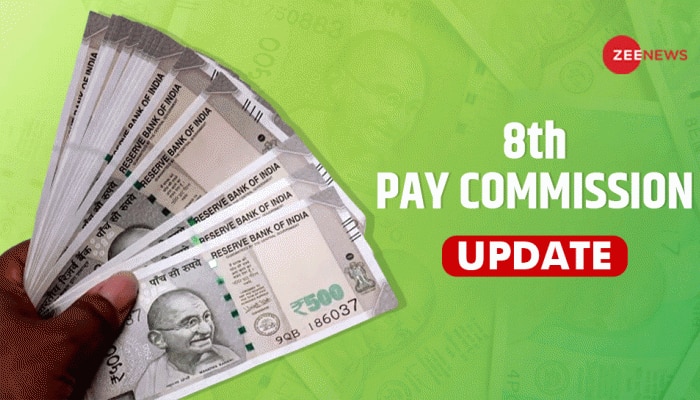Odd-Even Rule In Delhi From November 13-20 As Air Pollution Rises; Schools To Be Shut Except For Class 10, 12
Environment Minister Gopal Rai said that several teams of the Delhi government are working closely to reduce the rising air pollution. He also informed that more electric buses will be introduced in the national capital for public transport as part of efforts to tackle the air pollution woes.
Trending Photos
)
New Delhi: Amid serious concerns over rising air pollution, Delhi Environment Minister Gopal Rai on Monday said that the odd-even rule will be brought back in the national capital for a week, starting from November 13- 20 to improve the situation and curb the decline in air quality. ''The odd-even rule will be back in Delhi after Diwali and the closure of schools has been extended, except for Class 10, 12 in view of the rising pollution levels, '' Rai said.
#WATCH | Delhi Environment Minister Gopal Rai says "In view of air pollution, the Odd-Even vehicle system will be applicable for one week from 13th to 20th November..." pic.twitter.com/IPBTrxoOOE — ANI (@ANI) November 6, 2023
Gopal Rai said this while addressing a press briefing that was held shortly after Delhi Chief Minister Arvind Kejriwal chaired a high-level meeting with cabinet members and officials as the air quality dipped further in the city. Rai further said, "As per the forecast, the wind speed will be 12km/hour tomorrow, 7th November and if the speed reaches 10 to 12 km/hour, then there is a possibility that the level of pollution accumulated here might disperse. Similarly, the wind speed will be 8-10 km/hour on 8th November. It is expected that the speed of wind will increase on 7th and 8th November which will reduce the level of pollution..."
Rai further said that the several teams of the Delhi government are working closely to reduce air pollution. He also informed that more electric buses will be introduced in the national capital for public transport as part of the ongoing efforts to tackle the pollution woes.
Speaking about the ban on heavy vehicles, Rai said, '' The ban that was imposed on BS-III petrol vehicles and BS-IV diesel vehicles will be continued in GRAP-4... Except for LNG, CNG and electric trucks of the essential commodities and essential service vehicles, other trucks are banned from entry into Delhi...In GRAP-3, demolition work at Flyovers, overbridges and power transmission pipelines was given an exemption...Now they are also banned..."
The meeting was attended by Delhi environment minister Gopal Rai, Ministers Atishi and Saurabh Bhardwaj and officials of the concerned departments. Before the meeting, Gopal Rai said there would be discussions held on the implementation of GRAP-4 and how to control pollution in the city. "...There is a little improvement in Delhi's AQI as compared to yesterday but it is still in the severe category," Rai said.
What Is The Odd-Even Car Rationing Scheme?
The odd-even scheme of the Delhi government is a traffic rationing measure under which private vehicles with registration numbers ending with an odd digit will be allowed on roads on odd dates and those with an even digit on even dates.
The Delhi government has already announced the "Red Light On Gaadi Off" campaign in late October. The "Red Light on Gaadi Off" campaign, first launched on October 16, 2020, aims to reduce vehicular pollution in the national capital by encouraging drivers to switch off their vehicles while waiting for traffic lights to turn green.
Delhi AQI In Severe Category
The overall air quality in the National Capital continues to be in the 'severe' category for the fifth straight day, as per the Central Pollution Control Board. AQI measured at 9 AM from ITO in Delhi was recorded as 400 in the Very Poor Category. The AQI data from Ashok Vihar in West Delhi at 9 AM was recorded at 398 again in the Very Poor category. According to the data issued by the System of Air Quality Forecasting and Research (SAFAR-India), the air quality in the National Capital was recorded at 488, up from 410 a day ago.
GRAP Stage 4 Measures Implemented
This comes after the Commission for Air Quality Management (CAQM) on Sunday decided to invoke Stage IV of the Graded Response Action Plan (GRAP) in the entire National Capital Region (NCR) with immediate effect to prevent further deterioration of air quality. The Air Quality Commission said that Stage IV will be implemented in addition to the restrictions placed under Stage I to III.
According to the 8-point action plan, there will be a ban on entry of truck traffic into Delhi (except for trucks carrying essential commodities/ providing essential services and all LNG/ CNG/ electric trucks). Also, a ban will be imposed on the plying of Delhi-registered diesel-operated Medium Goods Vehicles (MGVs) and Heavy Goods Vehicles (HGVs) in Delhi, except those carrying essential commodities/ providing essential services. GRAP Stage-IV restrictions also include NCR State Govts and GNCTD may take a decision on discontinuing physical classes even for classes VI-IX, and class XI and conduct lessons in an online mode.
Schools shut, outdoor activities banned
Several schools in Noida, Ghaziabad, Gurugram and Faridabad are mulling online options for their students and banning all kinds of outdoor activities till the air quality improves. In view of the situation, some schools have announced that they will be switching to online classes, citing concerns over students’ health. Schools, especially in Noida and Delhi, have shut all kinds of outdoor activities such as morning assemblies and sports-related events.
Some schools even stated that they called off events such as annual sports days and inter-school competitions, which were scheduled to be held this week, in the wake of the hazardous haze currently blanketing the region.
Delhi Schools Closed Till Nov 20, Check Details
With the pollution levels soaring, Delhi Education Minister Atishi earlier announced the closure of primary schools in the city until November 10. For students in grades 6-12, the option of shifting to online classes is being offered. “As pollution levels continue to remain high, primary schools in Delhi will stay closed till 10th November. For Grades 6-12, schools are being given the option of shifting to online classes,” she announced on social media X.
The announcement was made as pollution levels once again reached the “severe plus” category in the capital due to unfavourable wind conditions, particularly calm winds during the night. A toxic haze lingered over Delhi for the sixth consecutive day on Sunday. Amid deteriorating air quality in Delhi, directives have been issued for 50 per cent of government and private office staff to work from home.
Factors causing the air pollution in Delhi-NCR
The cases of stubble burning in the neighbouring states of Uttar Pradesh, Haryana, and Punjab are the major sources of air pollution in the city. Meanwhile, a similar situation was witnessed in Bathinda, Punjab where the AQI remained in the (very poor) category with an overall Air Quality Index recorded at 215.
The National Green Tribunal (NGT) has urged the Chief Secretaries of affected states to take immediate remedial action and submit reports on measures taken to improve air quality. The NGT emphasizes the importance of safeguarding residents' health and ensuring better air quality in these cities.
Health risks of rising pollution
Delhi's air quality continues to rank among the worst in the world's capital cities, with significant health implications. Air pollution, as reported by the Energy Policy Institute at the University of Chicago, is shortening lives in Delhi by nearly 12 years. This crisis has forced many to forgo outdoor activities, and it poses particular risks to children, who breathe in higher concentrations of pollutants.
The severity of the situation underscores the urgent need for comprehensive measures to address air quality concerns in the national capital. According to doctors, for any healthy person, a recommended AQI should be less than 50, but these days the AQI has spiked beyond 400, which could prove fatal for those suffering from lung-related diseases and even poses a risk of lung cancer.
Stay informed on all the latest news, real-time breaking news updates, and follow all the important headlines in india news and world News on Zee News.
Live Tv







)
)
)
)
)
)
)
)
)
)
